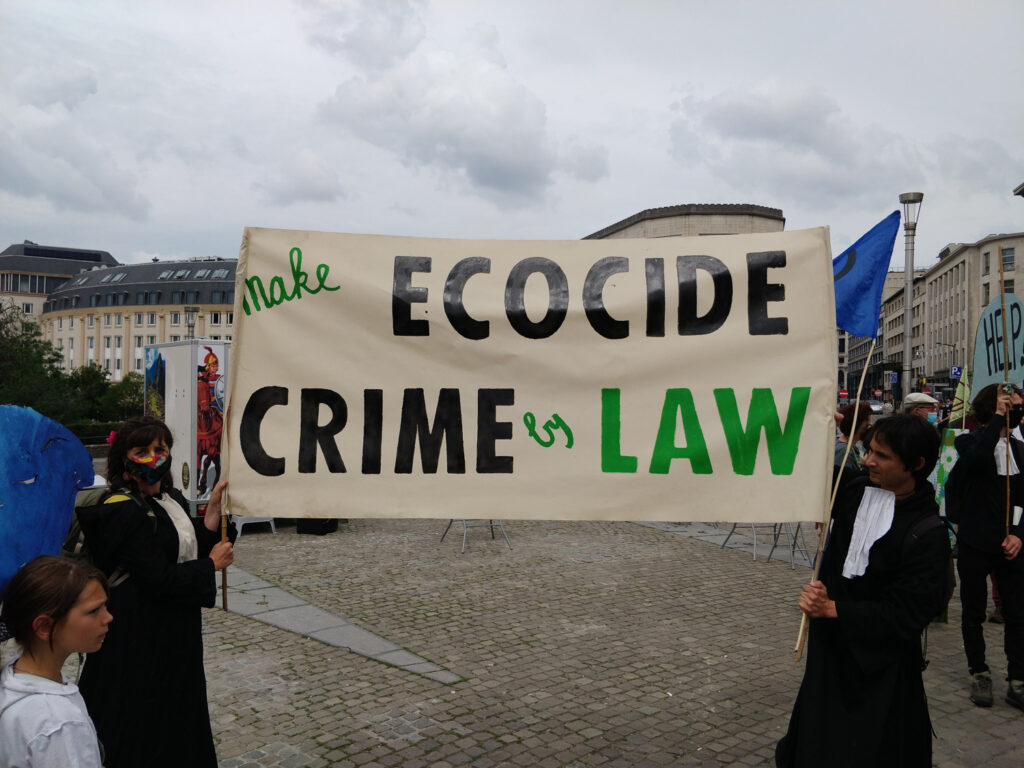The European Parliament and Member States have reached a provisional agreement to extend the list of environmental crimes and standardise EU sanctions.
The law aims particularly to clamp down on the illegal logging trade, importing invasive species, pollution caused by shipping, and violations of chemical product laws.
The agreement introduces the concept of “qualified offences” for severe environmental crimes causing “destruction of an ecosystem or habitat in a protected site, or damage to air, soil, or water quality”. This would criminalise serious offences that are comparable to “ecocide” – a term that would apply to devastating acts such as widespread pollution or large-scale forest fires.
The approved text updates a 2008 European directive that was seen as too weak and ineffective in tackling a booming and globally lucrative environmental crime trend. The revised directive suggests fines and imprisonment for offenders.
Individuals, including corporate representatives, guilty of environmental crimes leading to death will face a ten-year prison sentence. Qualified offences will have an eight-year jail term, and all other violations receive a five-year sentence.
Major offending companies could be fined up to 5% of their annual global turnover or €40 million. In less severe cases this would be 3% of the turnover or €24 million. They might also be deprived of public funding and be required to compensate victims and rectify the damages.
Related News
- 'Insanity': Environmental groups denounce EU glyphosate extension
- European Parliament agrees on the recognition of ecocide in EU legislation
- Glyphosate: EU allows use of controversial herbicide for another 10 years
The European Commission welcomed the agreement, stating: “Once the new directive has entered into force, Member States will need to include more precise definitions of environmental offence categories in their criminal law, coupled with deterrent sanctions for offenders.”
French MEP Marie Toussaint (Greens) applauded the EU for laying the groundwork for recognising “ecocide”. She wrote on X (formerly Twitter): “The offence accepted for the gravest crimes is very close to that of the international panel of jurists on ecocide (…), echoing efforts already undertaken nationally in some countries like Belgium.”
Belgium has included ecocide in its penal code since last July, recognising it as a severe crime with imprisonment ranging from 10 to 20 years. The agreement reached on Thursday is still awaiting formal adoption by the European Parliament and the Council.
Comparable to ecocide
The agreed text specifies that cases of widespread pollution, major forest fires or industrial accidents, are equivalent to that of ecocide as debated at international level but stops short of recognition of ecocide as an international crime.
According to the recital of the directive, “This qualified offence includes cases comparable to ecocide, which is already covered by the legal systems of certain Member States and which is being discussed in international fora.”
One of the amendments to the Commission’s legislative proposal required the EU member states to introduce a crime of ecocide in their national law using the same definition (as proposed in June 2021 by an expert panel brought together by the Stop Ecocide Foundation) but this was apparently not adopted.
Asked to comment on the agreement at the Commission's press conference today (17 November), a spokesperson replied that the agreement on a stronger legal framework was in line with what the Commission had proposed. “The more severe the environmental damage, the more severe the sanctions. Our report didn’t include the specific crime of ecocide.“
He added that the Commission is going to closely follow the development in the EU member states concerning the definition of ecocide and the possible response to ecocide.
Update: The article has been updated to include the Commission's comment on the non-inclusion of ecocide in the legislation.

